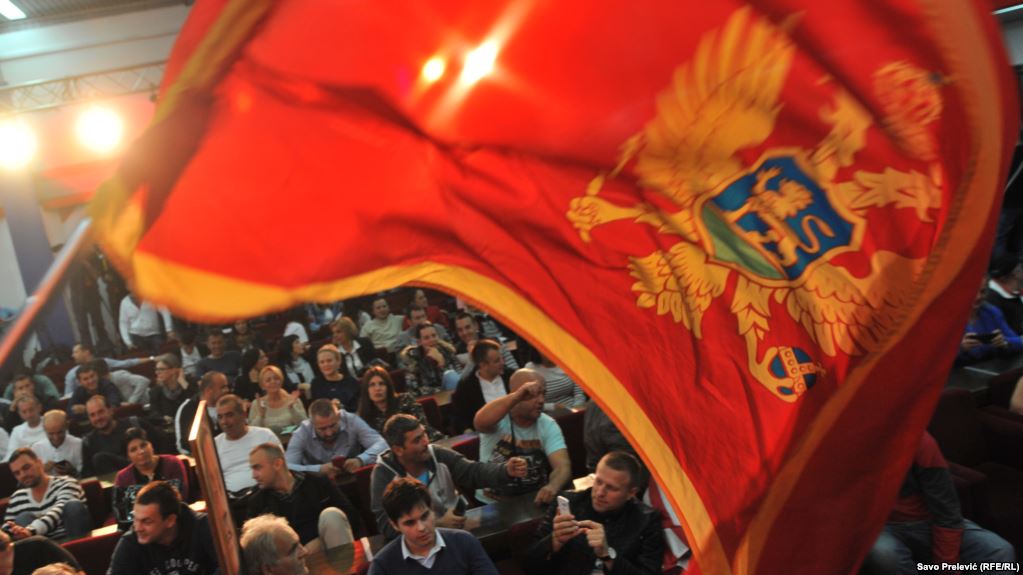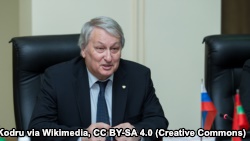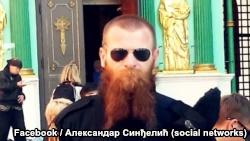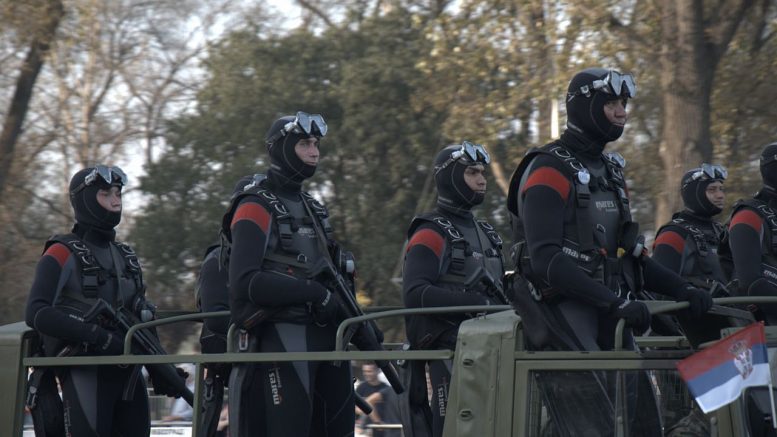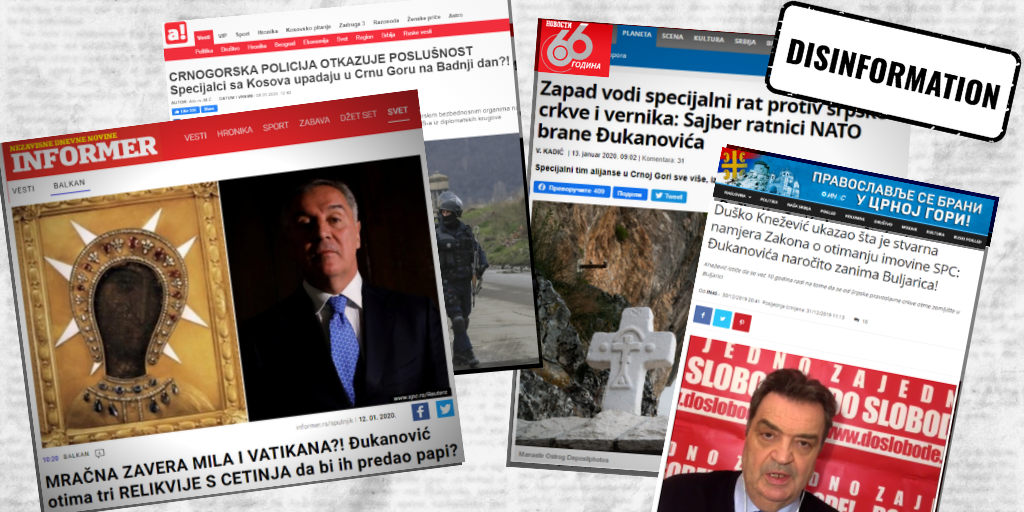We have written before about Russia's destructive influence growing in the Balkans and the Russian links of those suspected in organizing the coup in Montenegro. Nonetheless and much to Moscow's dismay, Montenegro officially became the 29th member of NATO last month. Does this mean that Russia's provocations will not be repeated in the future, and what does it say about the Kremlin's influence in the region currently? We spoke about these issues with Vesko Garčevič, former Ambassador of Montenegro to NATO and OSCE. Today he is Professor of Diplomacy and International Relations at Boston University's Pardee School of Global studies.
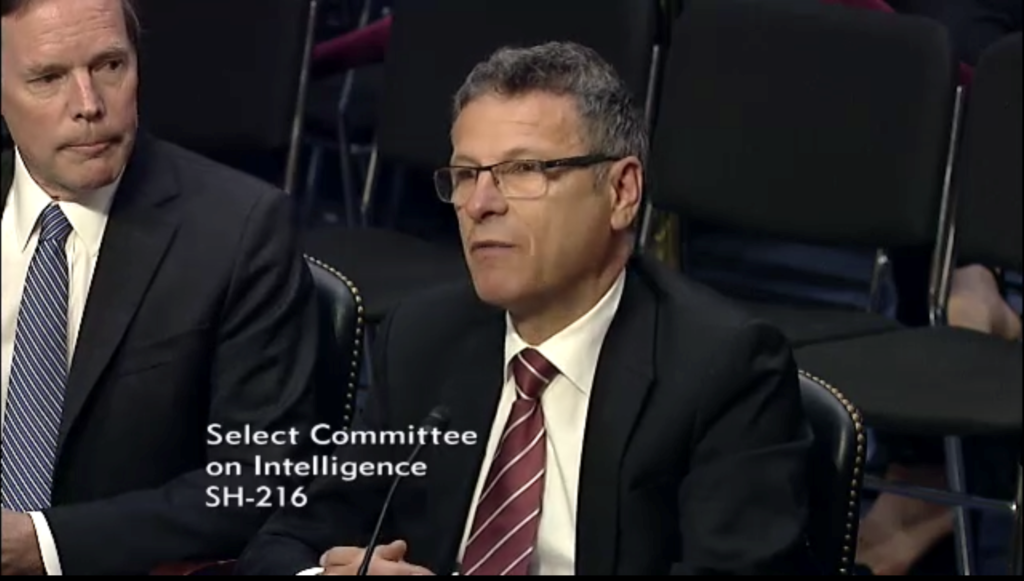
According to Professor Garčevič, Russia still has significant levers of influence in the region. Most of them, including propaganda media such as Sputnik and RT, are located in Serbia, not Montenegro. However, location matters little, since most of Montenegrins identify themselves as Serbs, and there is no language barrier between the countries.
"Since few in the region are able to watch Russian TV or read the press in Russian, Moscow has secured over a hundred outlets in Serbian-language media in Serbia alone. According to my observations, more than 30% of the inhabitants of Montenegro are susceptible to this content. Quite popular here is the Russian news agency "Southern Front" as well as many small TV channels, most of which are located in occupied Crimea, but broadcast in Serbian," he said.
According to Vesko Garčevič, local Serbian media regularly republish information disseminated by "Sputnik" or "Russia Today."
Local residents perceive this as information from their own local media, unaware that in fact it was prepared in Moscow –Vesko Garčevič
"As a result, local residents perceive this as information from their own local media, unaware that in fact it was prepared in Moscow. In addition, for a good segment of the population, the memory of the 1999 NATO bombings are still fresh, which also contributes to their anti-NATO sentiments," the expert suggested.
According to the former Ambassador of Montenegro to NATO, various Kremlin-sponsored movements such as "No War, No NATO" and "Movement for Neutrality" formally advocating for Montenegro's neutrality in the international arena are also quite widespread in his country.
"Like similar Serbian organizations, they maintain close ties with the State Duma deputy, deputy secretary of the United Russia General Council, Sergei Zheleznyak. "No War, No NATO" and "Movement for Neutrality" actively communicate with the Serbian "cohorts." In Montenegro, there is even a political party called the Democratic Front, which is a coalition, the majority of whose members are pro-Russia nationalist parties that very much resemble the "Serbian Radical Party" of Vojislav Sesel. Their leaders regularly visit Moscow, where they meet with Zheleznyak, and also with Dmitry Rogozin. At the moment, they represent the largest opposition bloc in the parliament, which won 21% of the vote in the last election. After the failed coup attempt in October 2016, their influence fell somewhat, but with the help of Russian backing and Russian money, they were able to regain their positions," Garčevič said.
According to the Montenegrin analyst, the leaders of the pro-Russia opposition also met in Moscow with Sergei Naryshkin and former director of the Russian Institute for Strategic Studies (RISI) Leonid Reshetnikov. It should be noted that RISI for a long time was an institute under the Foreign Intelligence Service of Russia, and then formally transferred under the aegis of Presidential Administration. This institution is known for its active lobbying for the annexation of the Crimea and the war in the Donbas, Ukraine, as well as its long-standing involvement in the destabilization of the Balkans. In 2017 former director of the SVR Mikhail Fradkov was appointed the new head of RISI.
"As director of RISI, Reshetnikov was very active in our region. Of course, it is quite difficult to prove a specific transfer of money, but it is known that Reshetnikov and Zheleznyak actively supported the "Balkan Cossack Army," created in September 2016 in Montenegro, headed by Viktor Zaplatin, who has lived in Belgrade for many years. It is interesting that for the official date establishing their "army," they chose September 11 - the infamous anniversary of terrorist attacks in the United States," said Vesko Garčevič.
It's worth nothing that Zaplatin is a known to have been taken part in the conflicts in Transnistria, Abkhazia, Bosnia and in eastern Ukraine. He is currently an authorized representative of the Donbas Union of Volunteers in the Balkans, and in the past was the first deputy commander of the border troops of the so-called "LNR" [pro-Russia self-declared "Luhansk People's Republic"–Ed.]
Also noteworthy, most of the people arrested for taking part in the October armed coup plot in Montenegro are members or sympathizers of the Balkan Cossack Army," the expert added.
According to Vesko Garčevič, most of the participants in the failed coup were Serbian radicals, members of nationalist organizations. The trial of the arrested is set to begin in September. In total, 14 people were taken into custody in Montenegro. The list of suspects includes two activists of the Democratic Front: Andrij Mandič and Milan Knezevič.
"According to the prosecutor, two Russian agents had prepared the terrorist attacks: Vladimir Popov and Eduard Shirokov. One of them, Shirokov, arrived in Serbia under the name Shishmakov. In 2014 he worked as deputy Russian military attaché in Poland, where in the same year he was accused of espionage and declared persona non grata. Then, in Serbia, they met with another coup participant, Aleksandr Sindželič, someone they knew from prior connections. As you know, of course, just a few days after the date of the alleged coup, Russian Security Council Secretary Nikolai Patrushev arrived in Belgrade. According to unofficial information, it was with his help that Shishmakov and Popov were able to leave for Russia. For our part, we repeatedly sent inquiries to Russia about these people, but Moscow has never answered us," Garčevič explained.
At the same time, the Montenegrin expert admits that the Kremlin can attempt a new coup, despite the fact that Montenegro is now also subject to the Article 5 of the NATO Charter. However, the problem lies in the fact that in the event of a successful overthrow of the current government, the new pro-Russian government will not seek military assistance from the allies. In this case, according to Vesko Garčevič, the pro-Russian authorities will try to stop the European integration of Montenegro and to get the country out of the NATO Alliance.
In the future, I expect that the "Democratic Front" led by Moscow will try to use the slightest opportunity to destabilize the political situation in the country
"In the future, I expect that the "Democratic Front" under the leadership of Moscow will try to use the slightest opportunity to destabilize the political situation in the country. At the moment, they deny the very fact of plotting a coup. However, in my opinion, they will not be able to organize anything like the coup attempt undertaken in October last year. The probability of a successful recurrence of such a scenario is rather low, but we should expect provocations of political instability and internal crises," the expert suggests.
At the same time, Vesko Garčevič notes: in some areas Moscow's influence is extremely low. For example, unlike Serbia, Montenegro is wholly independent of Russian oil and gas. The main sectors of the economy and finance are also free from Russian investments. The only market in Montenegro, which is widely represented by Russians, is the real estate and housing market.
"Right now we have about six thousand Russians. However, I don't see among them any anti-Montenegro activists. For example, when official Russian media disseminated disinformation, trying to discredit vacationing in Montenegro, representatives of the diaspora promptly issued a letter sharply refuting such statements as rumors," Garčevič said.
Another positive factor, according to the expert, is the recent improvement in relations with Serbia.
"For example, Aleksandr Sindželič was arrested by the Serbian authorities at our request and extradited to Montenegro. Immediately after the failure of attempted coup, the Prime Minister of Serbia held a press conference, wherein he confirmed that the Serbian special services also had information about the coup plot. Serbia has fully shared with us the evidence available to them, including communications of terrorists talking among themselves. However, Belgrade has yet to extradite another man accused in the coup, Nemanja Ristič, who is currently in Serbian police custody," added Vesko Garčevič.
Related:
- Montenegro bans entrance to 149 Russians and Ukrainians over Russian aggression in Ukraine
- Can there be another coup in Montenegro?
- Support for joining NATO at a historical high in Ukraine | Infographic
- Ukraine restores course towards NATO membership
- Russian provocations test Georgia
- Putin regime now entering its fifth and final phase, Yakovenko says
- Putin’s ‘secret weapon’ against the West – massive illegal cash hordes in foreign countries

